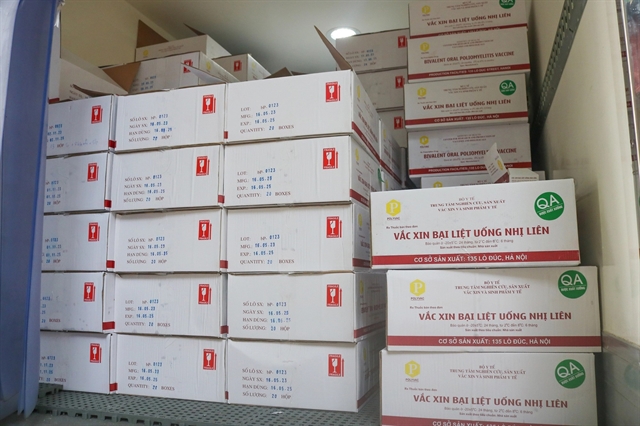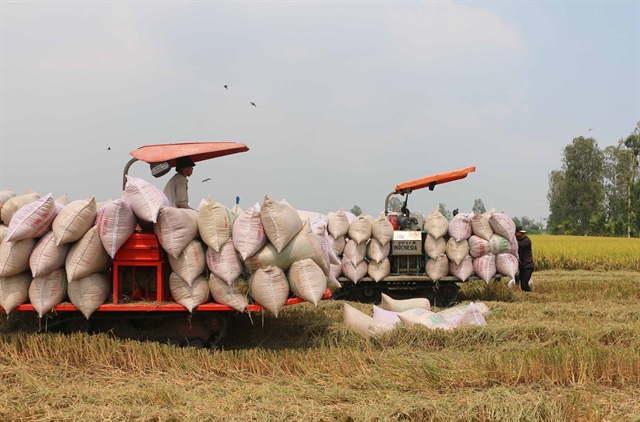 Society
Society

 |
| Director of the Drug Administration of Vietnam Vũ Tuấn Cường. Photo vtv.vn |
Director of the Drug Administration of Việt Nam, Vũ Tuấn Cường, spoke to with Vietnam Television regarding the future development trajectory of the pharmaceutical industry.
As the leading advisory body on pharmaceuticals and cosmetics legislation for the Government and the Ministry of Health, could you assess the notable achievements of the pharmaceutical industry in recent years?
Over the past few years, with the guidance of the Party Committee and the Minister of Health, the pharmaceutical industry has made significant strides forward. Foremost among these achievements is the consistent provision of quality medicines at reasonable prices to the populace.
Especially amid the recent challenges posed by the COVID-19 pandemic, we have successfully procured over 250 million doses of vaccines and tens of millions of doses of medication, bolstering public health efforts.
The industry has diligently constructed a robust legal framework, pivotal for its sustained growth. We've played a pivotal role in advising on the enactment of 31 legislative instruments, including the Pharmaceutical Industry Development Strategy, Pharmaceutical Industry Development Project, and an array of legislative statutes, thereby fostering an environment conducive for production, trade and advancement.
We've prioritised administrative streamlining, reducing regulatory hurdles, and catalysing digital transformation. Substantial transformations have been witnessed across all facets of the industry. Presently, retail systems interlink 61,000 pharmacies and 100 per cent of public service procedures have achieved Level 4 status. Notably, drug quality is rigorously assured, with the incidence of substandard drugs consistently held below 1 per cent.
Could you please outline the strategies to enhance the utilisation of domestically produced and exported drugs in Việt Nam in the foreseeable future?
We advocate for a comprehensive approach. Firstly, it's imperative to bolster the capabilities of domestic production entities. Presently, we've attained over 50 per cent domestic drug production.
Effective communication campaigns are essential to underscore the quality of domestically manufactured drugs, thereby fostering increased adoption. Additionally, we must incentivise investment and foster a conducive environment for the growth of localised pharmaceutical industries.
Strategically, we need to formulate policies that prioritise the procurement of domestic drugs, aiming to achieve an 80 per cent domestic drug usage target by 2030.
What strategic directions and initiatives are imperative for the future advancement of the pharmaceutical industry?
Confronted with global adversities, our pharmaceutical sector encounters challenges such as disrupted supply chains and the deficiency in producing certain specialised drugs.
Our reliance on imported raw materials underscores the necessity for strategic interventions for future industry development.
Primarily, we must intensify efforts to attract investment and facilitate technology transfer, crucial for mitigating our reliance on imported raw materials.
We must leverage our indigenous herbal resources and prioritise the development of herbal-based pharmaceutical products.
Strategic integration into the global value chain, coupled with the promotion of drug exports where Việt Nam holds competitive advantages, is paramount.
Lastly, continuous administrative reforms, digital transformation initiatives, and the enactment of investor-friendly policies are vital to propel our industry towards the goal of achieving parity with advanced regional counterparts by 2030, attaining a Level 4 classification per the World Health Organization's pharmaceutical industry development scale.
Could you elaborate on the key policies proposed in the upcoming amendments to the Pharmacy Law?
In our efforts to amend several articles of the Pharmacy Law, we have made the draft available on both the Government and Ministry of Health websites, adhering to the timeline for submission to the National Assembly by May 2024. It is anticipated that the Assembly will review and potentially approve it during the October 2024 session.
The forthcoming amendments to the Pharmacy Law will centre around five pivotal policies aimed at fostering administrative procedural reforms and enhancing the investment climate, propelling the pharmaceutical industry towards greater growth and development.
Concerning registration procedures, our focus will be on facilitating the automatic renewal of conditional registration numbers, fostering a conducive environment for businesses to seamlessly access the Vietnamese market.
We will introduce a dedicated chapter on pharmaceutical industry development, outlining comprehensive preferential policies pertaining to technology, taxation and innovation. Notably, emphasis will be placed on policies incentivising the production and sourcing of raw materials for pharmaceutical chemistry, ensuring a robust and self-sufficient supply chain for the future development of the pharmaceutical sector. VNS


.jpg)

